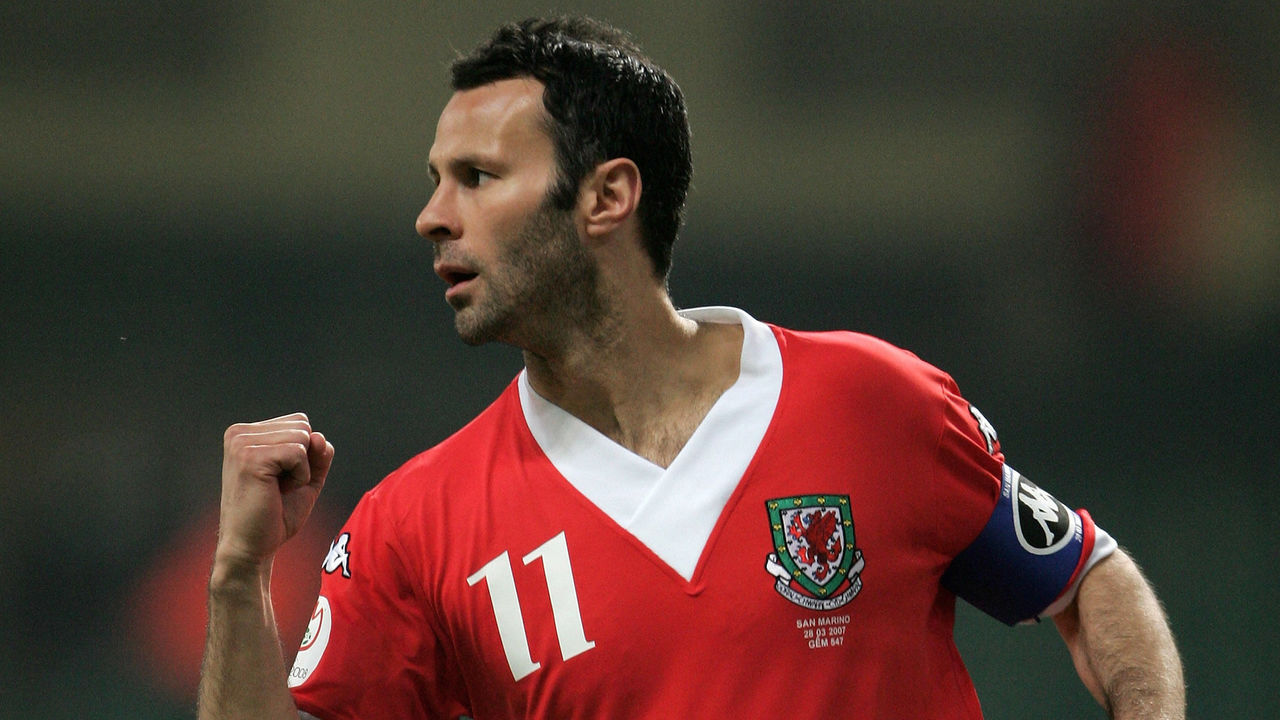Giggs' hiring showcases international management's waning appeal
So Ryan Giggs was right. Rather than earn your stripes in the lower leagues or as an innovative coach at a leading club, you can simply stroll into generously compensated, full-time gigs because you're famous. Why valiantly battle for League Two promotion with Notts County like Kevin Nolan when you can cut corners and reportedly become the highest-paid gaffer in Wales' history?
Monday's appointment is a peculiar one by the Football Association of Wales, and one that shows the diminishing allure of international management. Sixty-four international caps and a huge medal haul at Manchester United are not bad things to include in a resume, but Giggs' coaching record isn't one that should merit the honour of handling his country.
He was No. 2 during the ill-fated tenures of David Moyes and Louis van Gaal at United (and served a four-match spell as caretaker manager), until he was jettisoned by Jose Mourinho when the Portuguese took over ahead of the 2016-17 season. Since then, Giggs has been out of work. His closest flirtation with employment came at Swansea City, but, following what The Daily Mail's Riath Al-Samarrai dubbed an "underwhelming" interview by Giggs, the Swans chose Bob Bradley instead in October 2016. They didn't seem to reconsider Giggs when Bradley lasted merely 85 days.
Giggs has held out for a top-level job throughout his time flicking through the job listings, even proffering the Brexit-era bore requisite of blaming foreign managers for his lack of opportunities.
The 44-year-old's unveiling as Wales boss won't be met by widespread approval, and it's not just down to a sense of entitlement and scant coaching CV. The retired winger's commitment to Wales was questioned during his playing days as he was repeatedly absent from friendlies. Club football always came first, and it will be interesting to see how he gees up his players for warm-up matches.

(Photo courtesy: Getty Images)
It's a hire that also shows the low regard that international management is held in nowadays. In 2008, the manager of Wales was John Toshack, a man who ruled Real Madrid twice and brought silverware to Real Sociedad, Deportivo La Coruna, and Besiktas. Fabio Capello and Giovanni Trapattoni managed England and Ireland, respectively, after sweeping honours in club football for decades. Ten years later, Giggs is Wales manager, and Gareth Southgate oversees England despite a relegation with Middlesbrough being the only notable juncture of his post-playing career. Ireland's Martin O'Neill is the most decorated national team boss in the British Isles after two League Cups with Leicester City, and a predictable goldrush at Celtic.
There's no indication that the pattern will change. International management has become a training ground for inexperienced managers who aren't trusted by bigger clubs, and it's the success stories of some - Joachim Low with Germany, and the fine start to Julen Lopetegui's reign in Spain - that will encourage other federations to follow this trend. If the job doesn't go to a younger coach, the international game has additionally turned into a decent part-time earner as retirement beckons, as Gian Piero Ventura and Gordon Strachan can attest.
The appeal of club football for a coach at the peak of his career is too much to ignore. Antonio Conte missed the day-to-day grind of it when wringing the best out of a poor Italy side, dashing into the arms of Chelsea and its luxuriant wages after Euro 2016. Carlo Ancelotti turned down the opportunity to succeed Ventura in the same job in December, citing a preference to remain in the club game, but also understandably referring to the Federazione Italiana Giuoco Calcio's political turmoil when shoeing away the link.
So for Wales, a promising era that blends Gareth Bale and Aaron Ramsey with emerging talents Ben Woodburn and Ethan Ampadu has been thrown into disarray. No one really knows what Giggs offers the post, and, although his competition wasn't the greatest, hiring fellow interviewee Osian Roberts, a man entrenched in the Welsh setup, would've been the smarter move.
In this case, it seems a sexy appointment beats common sense. Wales' huge progression in recent years could have hit a brick wall.